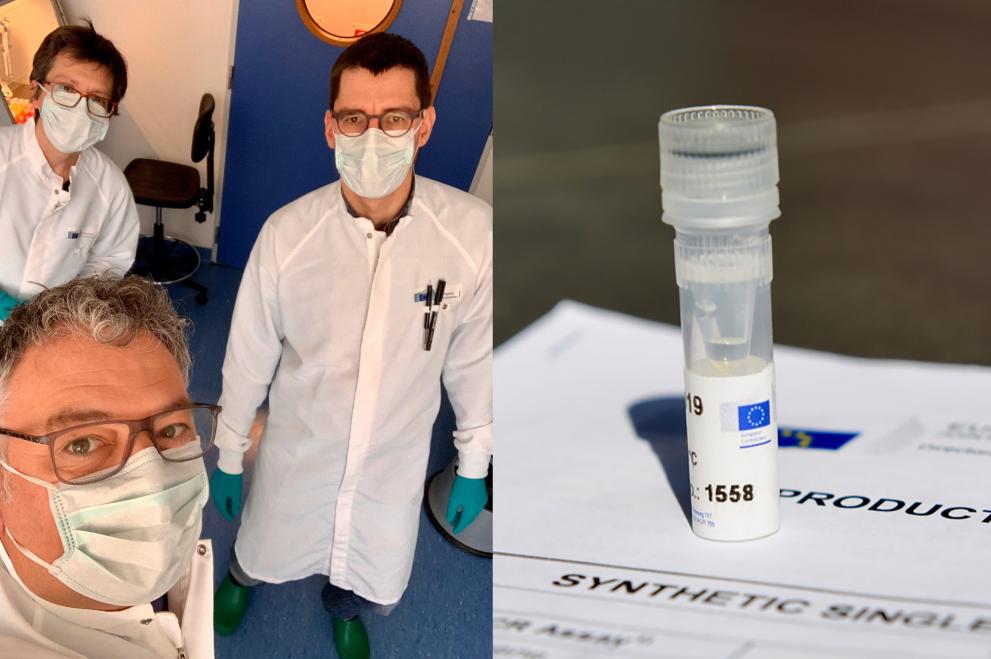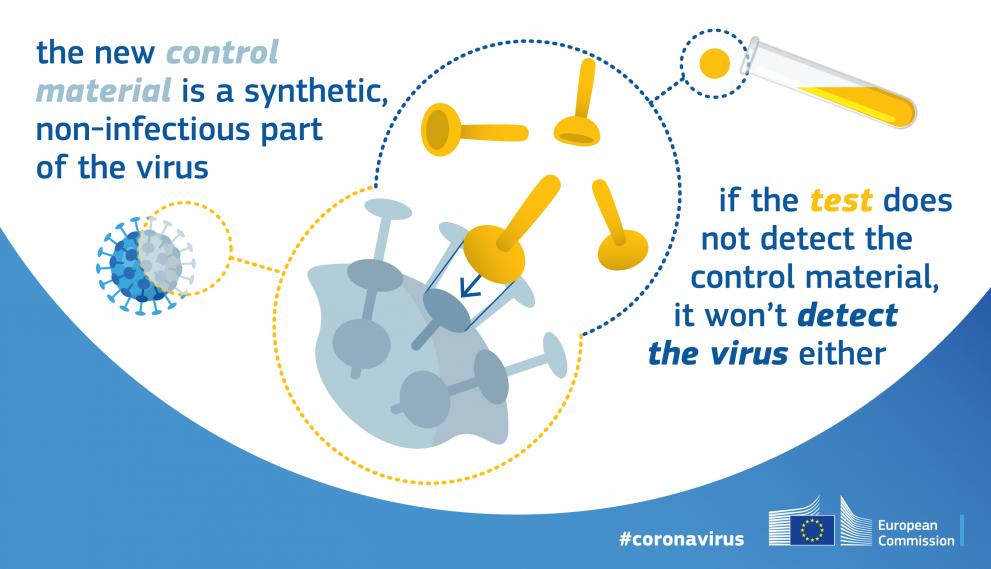
JRC scientists have designed a new control material that laboratories can use to check the correct functioning of their coronavirus tests and to avoid false negatives.
The coronavirus disease COVID-19 is caused by a virus called SARS-CoV-2.
Timely and accurate laboratory testing is an essential part of tackling the COVID-19 pandemic.
A recent EU survey identified the lack of positive control materials as one of the top three challenges faced by laboratories for the reliable implementation of coronavirus tests.
Responding to this need, JRC scientists have designed a positive control material to facilitate the quality control of the detection of SARS-CoV-2 in testing laboratories.
Mariya Gabriel, European Commissioner for Research and Innovation, responsible for the Joint Research Centre (JRC), said: "This is EU science in action when it is needed and where it is needed, to support the EU's response to the current crisis. The JRC quickly identified a potential gap in the management of the coronavirus outbreak and immediately set to work to fill that gap. The new control material has the potential to improve the EU’s capacity to respond to the virus outbreak and avoid valuable resources being wasted by inefficient tests."
Stella Kyriakidou, European Commissioner for Health and Food Safety, said: "Quick and reliable laboratory testing is fundamental to our strategy against COVID-19. The work of EU scientists to develop test control material will enable the verification of up to 60 million laboratory tests throughout the EU. This is a major achievement by our researchers, which will be crucial for our exit strategy when the time comes to start lifting social distancing measures."
What is a positive control material?
A positive control material guarantees that laboratory tests are working correctly and are harmonised.
In particular, it is used to avoid that a test could give a negative result even if the person is positive.
In practice, the JRC-designed control material is a synthetic, non-infectious part of the virus.
It allows companies producing coronavirus tests and testing laboratories to check their testing kits: if their test does not detect the control material, it will not detect the real virus either.
The control material will enable the harmonisation of coronavirus tests in Europe, ensuring their high quality to avoid false negatives.

Universally applicable control material
The SARS-CoV-2 virus mutates rapidly. This means that today, there is a family of SARS-CoV-2 viruses.
The control material designed by the JRC scientists is based on the part of the virus that has remained stable after the virus has mutated.
This means that the control material is fully compatible with the official WHO recommended methods applied in the EU, in Asia and the USA to detect the presence of SARS-CoV-2.
The material can also be used to benchmark and validate the numerous test kits currently developed worldwide.
3000 samples ready to be dispatched to EU laboratories
The control material was manufactured by a German biotech company on the basis of a JRC design, and then validated by JRC laboratory experts.
Today, 3000 samples are ready to be dispatched to the testing laboratories across the EU, including the major reference virology centres as well as hospitals. The samples are highly concentrated.
In practice, only a very small quantity of the material is required to check one test. This means that one sample tube is enough for one laboratory to check up to 20 000 tests.
Thus the 3000 samples that are now ready make it possible to check up to 60 million tests throughout the EU.
Samples will also be made available to the wider EU testing community, but priority will be given to laboratories appointed by their governments, as well as the research community.
Further information and guidelines for orders are available on Certified reference materials website.
What is a reference material?
Reference materials are the heart of reliable measurements. They provide a benchmark for analytical laboratories around the world to deliver accurate and comparable results.
The JRC is one of the major developers and producers of reference materials in the world.
It currently provides over 760 reference materials, and distributes around 20,000 units per year to testing laboratories worldwide.
Details
- Publication date
- 1 April 2020
